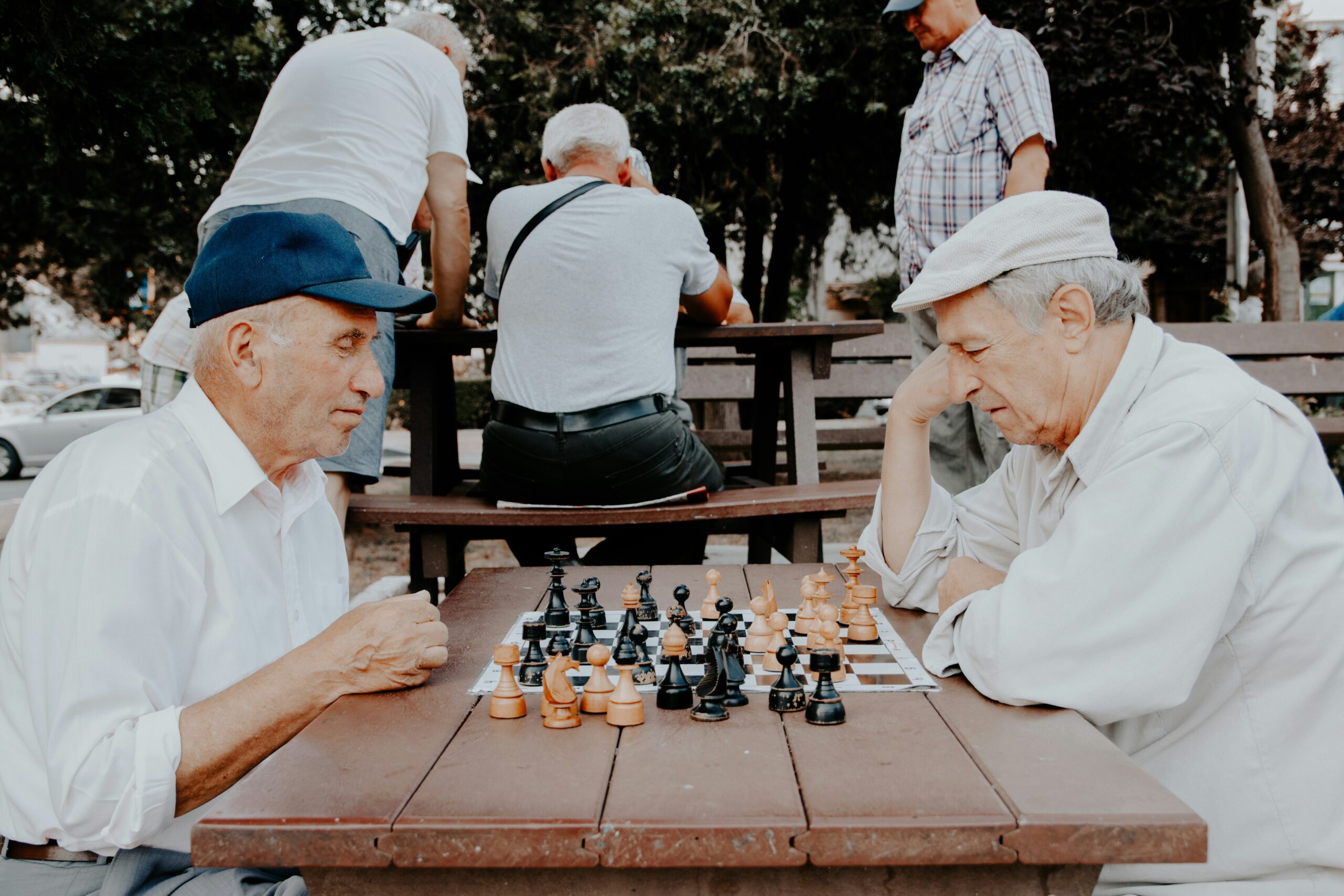Treatment for Dementia

When a loved one has begun showing signs of dementia or has already received a sure diagnosis, it can be quite daunting to know what next step to take. Although there is currently no known cure, there are several treatment options to choose from. These options, both medical and non-medical can help your loved one manage symptoms, as well as maintain a positive state of mind as they navigate this difficult time. As you and your family tackle this diagnosis, it is important to know what to look for, the many options available to you, and how you can get started on implementing these treatment options into your loved one’s daily routine.
The Importance of Early Detection
Millions of people worldwide are living with dementia, with roughly 10 million cases arising each year. Even so, many people are unaware of the warning signs of this disease, and oftentimes learn more about it as their loved one is being diagnosed. However, early detection is important when it comes to implementing a treatment plan and early intervention. Early detection is crucial in creating a wellness plan to improve the quality of life of your loved one.
The best way you and your loved one to detect dementia early on is to understand what it is and how it affects your body. Some of the primary signs and symptoms may include memory loss, trouble communicating, poor coordination, confusion or disorientation, and trouble completing tasks. If you or your loved one begin to notice changes in these areas, even if they are small, you should ensure that they consult their physician. As soon as a diagnosis has been given, you should begin exploring the many treatment options for dementia, both medical and non-medical.
The Goals of Dementia Treatment
During this trying time, you or your loved one may find yourself wondering what the end goal is of treating a disease that is currently incurable. Although dementia will continue to run its course, it is important to understand the benefits of utilizing various treatment options, as they will help your loved one maintain their quality of life and continue the function of daily tasks as independently as possible.
As with any other illness, the primary goal of treatment is to manage the inevitable symptoms. Although these symptoms will present themselves with due time, various treatment options may help slow the onset of these symptoms or lessen the impact that they have on your loved one. This, in turn, helps your loved one keep a semblance of normalcy in their life as they navigate through this unknown journey.
Treating Dementia with Medications
There may not be a current medication to cure dementia, however, there are many known medications that are used by people living with dementia to help manage their symptoms. Coupled with various types of therapy, this can prove to enhance your loved one’s quality of life.
As your loved one begins to progress in their diagnosis, a physician will assess the present symptoms and prescribe medications to help provide relief from some of them. Some of these medications include:
- Cholinesterase Inhibitors: These medications slow down the breakdown of the brain chemicals involved in memory and judgment.
- Memantine: This drug interacts with chemicals in the brain that deal with learning and memory.
- Antidepressants: These can be used to address low mood and irritability that may come with dementia.
- Anxiolytics: These medications help address anxiety and restlessness.
- Anti-amyloid treatments: These medications are used to show the biological changes associated with certain types of dementia. Currently, the FDA has approved Leqembi.
Treating Dementia with Non-Medication Interventions
Dementia causes various changes in people, ranging from cognitive, physical limitations, and emotional changes. The symptoms that are associated with dementia can have a major impact on a person’s daily life, including the way they feel and function. This is why non-medicinal interventions are an important part of treating dementia and enhancing your loved one’s life.
Cognitive Stimulation Therapy
Cognitive stimulation therapy (CST) is used to target symptoms experiencing memory, problem solving, and communication. Under this form of therapy, people join groups and partake in activities such as puzzles, word games, baking, gardening, group discussion, team games, and number games. When a person engages in a game or activity that they are not used to doing, they exercise a part of their brain that is less commonly used, strengthening their cognitive function. CST has shown to be effective in improving mental functions, as well as short-term memory. Additionally, working in a group setting and participating in interactive activities can help address depression and anxiety in your loved one, as they build a community of others going through the same thing and continue to improve their ability to function in their daily life.
Occupational Therapy
Occupational therapy works to address the many changes that may occur in your loved one’s function of daily life activities. The occupational therapist will assess your loved one’s current state and address any areas that need work. During the regularly scheduled visits, the person will work on these items, either with help or independently, ensuring that they remain capable. Occupational therapy also allows for accommodations to be made to the person’s home so as to help make daily life easier and more accessible to them. This form of therapy can also be beneficial for family members and loved ones of the person, as it provides education and support.
Speech and Language Therapy
In many cases, someone with dementia may find themselves experiencing symptoms like difficulty communicating, trouble eating, and dysphasia. In these instances, speech and language therapy can prove to be beneficial in supporting good communication and safe eating, drinking, and swallowing. Although often forgotten, speech and language therapy is vital throughout a person living with dementia’s life, as it ensures that they are able to advocate for themselves and their healthcare, as well as maintain safe habits that can impact their overall health.
Physical Exercise
Physical exercise is beneficial for anyone who partakes but can prove to be especially beneficial for those living with cognitive disorder like dementia. Some of the notable benefits that come from physical exercise for those with dementia include preventing muscle weakness, addressing mobility limitations and other underlying health complications, improving mood, encouraging social participation, and establishing a sense of routine. Physical exercise routines should include aerobic exercises, strength training, flexibility training, and balance training. It is important to consult a doctor before beginning any new physical activity to ensure that your loved one is safe and capable.
Alternative Dementia Therapies
Other forms of therapy can be used to focus on your loved one’s quality of life and mental well-being. Although these forms of therapy may not directly address cognitive or motor function, they can prove to be beneficial in enhancing your loved one’s mental state and lowering any of the stress, anxiety, depression, and irritability that might follow a diagnosis.
Art and Music Therapy
As your loved one begins to experience difficulties in communicating, it is important to find new ways for them to express themselves. Art and music therapy serves as an outlet for your loved one that allows them to be creative and communicate with others in a more indirect manner. Art and music therapy can be used in different ways to make it accessible to your loved one throughout the progression of their dementia. Additionally, this form of therapy can help your loved one find relief from any stress and anxiety they may be feeling, enhancing their overall mental well-being.
Pet Therapy
Pet therapy is a guided and supervised visit between a person and a trained animal. Done in one-on-one or group settings, this type of therapy is used to promote improvements in the physical, social, emotional, and cognitive standing of your loved one. Although dogs are typically used for pet therapy, other animals can be used, including cats, horses, aquatic animals, and sometimes even robotic or toy animals. Systematic reviews for pet therapy have shown that it positively impacts mood, response, engagement, interaction, depression, and the use of pain medication in people living with dementia .
Aromatherapy
Aromatherapy is an ancient process that uses essential oils, herbs, flowers, and trees to address the mental, physical, and spiritual well-being of residents. These aromas help promote relaxation and can even reduce pain and relieve other symptoms. As dementia progresses, you may notice behavioral changes linked to agitation, aggression, and increased irritability. Aromatherapy can be used in their daily routine to help them find relief from these feelings and decreased the chances of it negatively impacting their life. Additionally, some essential oils can be used to stimulate cognitive functioning and memory for people.
Dementia Treatment at Home
Although some people with dementia may continue to live and receive treatment in their home, there are other options, including assisted and independent living, available to help maintain quality of life while following a wellness plan. In this case, it is important to ensure the home and caregivers are educated on dementia and prepared for its progression. The home should include modifications to address your loved one’s cognitive and physical changes. This may include making items more easily accessible, properly storing harmful chemicals, securing unlocked doors, and keeping the order of the home consistent and familiar to your loved one.
As different family members and friends visit or take turns providing care, it is important that they understand what to expect and how to address specific difficulties. Each caregiver should be aware of the treatment plan for the person and willing to consistently provide care. As unpredictable changes occur, like aggression or disorientation, caregivers and loved ones should be aware of how to manage these symptoms.
How Dementia Treatment Changes in Each State of Dementia
Loved ones should have an understanding of each stage of dementia, as is continues to progress and become more severe. Treatment plans may need altering as your loved one reaches further stages of dementia, and living arrangements may need to be altered to better serve them. The stages of dementia include early, mild, moderate, severe, and end of life. As your loved one enters each stage, they will be met with a new set of difficulties that may interrupt their daily life and function. As their support, you should be aware of these stages, know what to look for, and know when to reach out for further help.
Your Next Step
Dementia is an illness that is experienced by many seniors, and early detection can be key in addressing the present symptoms. There are several medication options that can be discussed with your loved one’s physician to help address symptoms and improve cognitive function. However, there are also other forms of therapy that can help your loved one maintain their quality of life and enhance their overall well-being.
You and your loved one do not have to face this diagnosis alone. At SRG, we have the resources you need to ensure that your loved one is living their best life throughout the progression of their dementia. Reach out today to find out how our community, memory care, and living options can help you and your loved one navigate this new journey.




